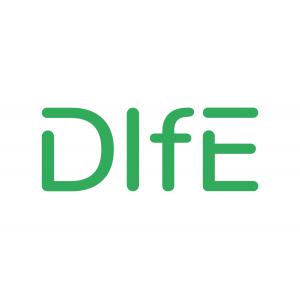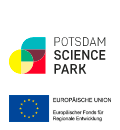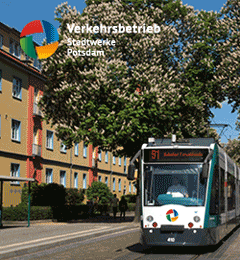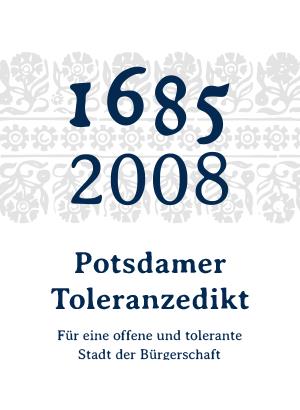Olaf Scholz and Dr. Manja Schüle visit the DIfE
►Prof. Tilman Grune and Dr. Birgit Schröder-Smeibidl welcome the German Chancellor Olaf Scholz and Brandenburg's Science Minister Dr. Manja Schüle. (photo: Carolin Schrandt/DIfE)
German Institute of Human Nutrition Potsdam-Rehbruecke
An announcement from the Leibniz Association
August 16th, 2023
Olaf Scholz and Dr. Manja Schüle visit the DIfE
In his capacity as Member of Parliament for the electoral district of Potsdam-Mittelmark II, Chancellor Olaf Scholz visited the German Institute of Human Nutrition Potsdam-Rehbruecke (DIfE) on Monday together with Dr. Manja Schüle, Minister of Science, Research and Culture (MWFK) of the State of Brandenburg. As part of his summer tour, the chancellor learned how nutrition can influence health, how research findings are incorporated into prevention and treatment options for diet-related diseases, and the role that sustainability and climate neutrality play at DIfE.
Focus on prevention research and sustainability
The new week started with a very special event for the DIfE: In bright sunshine, DIfE’s Board of Directors Prof. Dr. Tilman Grune and Dr. Birgit Schröder-Smeibidl, welcomed the German Chancellor Olaf Scholz and Brandenburg's Science Minister Dr. Manja Schüle to the Gerty Cori House. In a small group discussion, the two SPD politicians gained insights into the research priorities and strategic orientation of the institute. The Scientific Director Prof. Grune emphasized the importance of prevention research in Germany: "In view of the current morbidity figures, it is immensely important to tackle the causes of diet-related diseases such as obesity, type 2 diabetes and cardiovascular diseases at their roots. Preventive measures are crucial to minimizing the suffering of those affected and relieving the burden on the healthcare system in the long term. Prevention research should therefore definitely be further promoted." Dr. Schröder-Smeibidl, Administrative Director, then provided information on the renovation of the original DIfE building, which began in 2021 and is being funded by the federal and state governments to the tune of 19.1 million euros, as well as on the innovative approach to building an energy center for heat generation and refrigeration.
In dialogue with employees from research and administration
After the small group discussion, four employees from science and administration presented their work at DIfE in short, 90-second presentations. Prof. Dr. Annette Schürmann, head of the Department of Experimental Diabetology and spokesperson of the German Center for Diabetes Research (DZD), started the presentation by highlighting the urgent need for action in the prevention of type 2 diabetes. Dr. Sören Ocvirk, project leader of the Intestinal Microbiology research group, then explained the importance of the diversity of the intestinal microbiota and how this can be maintained through a healthy diet. This was followed by a presentation by Selma Yagoub, a doctoral student in the Neural Circuits Junior Research Group, on the influence of maternal nutrition during pregnancy on the formation of neural circuits in the child.
Climate-neutral research operation by 2035
Following the scientific topics, Mathias Noll, Head of Facility Management, explained the challenges and approaches on the way to a climate-neutral research institute. "With the pilot project 'Climate-neutral research operation', funded by the Leibniz Association, we will develop concepts and instruments for climate-neutral scientific operation, make these ideas available to the Leibniz Association and thus contribute to sustainability. The state funding from the Brandenburg package will already be used to implement initial measures to reduce CO2 emissions by the end of 2024," said Noll.
Dr. Schröder-Smeibidl underscored these plans, saying, "With the upcoming major renovation project and the construction of a new energy center, we will be able to significantly reduce DIfE's dependence on fossil energy sources and move decisively closer to our goal of being climate neutral by 2035."
Human study center and biobank in fast forward mode
The one-hour visit by Olaf Scholz and Manja Schüle concluded with a brief tour of the Human Study Center (HSC) and the adjacent biobank. During this tour, HSC director Dr. Sonja Schieß explained how the HSC supports both DIfE scientists and external researchers in the generation and management of research data and samples. Once inside the biobank, she gave the floor to Peggy Großmann who introduced the guests to the centrepiece of the biobank: a sample robot in which up to 180,000 human biosamples are stored at -150°C to -180°C and whose storage and removal is simplified thanks to automated handling.
Research at the highest international level
Olaf Scholz summarized his impressions and insights of the day in a concluding statement: "Nutrition is something that is part of who we are as people. It is important to know how nutrition can be designed so that we can live well and healthily. That's why it's so important that research is carried out here at the highest international level and that these findings then find their way bit by bit into our everyday lives."
Dr. Manja Schüle added, "There is a saying: 'You are what you eat.' At the DIfE, research is being conducted into what kind of food is good for us. After all, the risk of widespread diseases such as type 2 diabetes or cardiovascular diseases depends to a large extent on our diet. But: How do food choices originate in the brain - and can they be changed? How does the body respond to a particular diet? With its excellent experimental and application-oriented basic research, the DIfE is working on these and other questions of the future. However, the institute, which is rich in tradition, is not only a driver of nutrition and health sciences in Brandenburg but is also an important player in science communication. And there can never be enough of that - more science, more proposed solutions, more discourse!"
Press contact
Press and Public Relations
phone: +49 33200 88-2335
e-mail: presse@dife.de
Read this press release online and view images at:
https://www.dife.de/en/details-home/olaf-scholz-and-dr-manja-schuele-vis...
The German Institute of Human Nutrition Potsdam-Rehbruecke (DIfE) is a member of the Leibniz Association. It investigates the causes of nutrition-associated diseases in order to develop new strategies for prevention, treatment and nutritional recommendations. Its research interests include the causes and consequences of the metabolic syndrome, a combination of obesity, hypertension (high blood pressure), insulin resistance and lipid metabolism disorder, the role of nutrition for healthy aging and the biological bases of food choices and dietary behavior. DIfE is also a partner of the German Center for Diabetes Research (DZD), which has been funded by the Federal Ministry of Education and Research (BMBF) since 2009.












